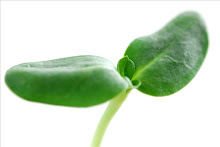
To follow up on my previous post I would like to present the 10 ways to help our oceans and beaches as recommended by the Surfrider Foundation.
- Pick up your pet's wastes. Pet waste that reaches the ocean can make both people and marine life sick!
- Conserve energy. Switching to energy-efficient light bulbs and other energy saving activities helps to slow climate change. Global warming will have dramatic impacts on our coastlines.
- Hold onto your butt. It's best not to smoke, but if you do, make sure you dispose of your used cigarette in a proper waste container. Cigarette butts are the number one litter component found on the beach!
- Don't hose down your driveways. Not only does it waste water, but it causes oils and other pollutants to end up in our oceans. Use a broom and dust pan instead.
- Use native or climate-adapted plants in your garden. These kinds of plants use less water, which helps reduce runoff and helps keep our beaches clean.
- Always dispose of used motor oil properly. Never dump oil in a storm drain or field. Instead, take it to a gas station or approved collection area for recycling.
- When you go to the beach, make sure you not only pick up your trash, try and pick up at least one piece of somebody else's. If everyone did this, we'd have our beaches and coastlines looking better in no time!
- Cut back on your use of fertilizers. Excess fertilizers that make it into our waterways can cause harmful plankton blooms that can harm fish, marine mammals and other sea life.
- Avoid using single-use plastic bottles and bags. These and other types of plastics often end up on our beaches and in our oceans, where they harm birds, sea turtles and other marine life. Instead, use refillable bottles and reusable bags and containers.
- Join the Surfrider Foundation! They are a non-profit grassroots environmental organization that works to protect oceans, waves and beaches across the globe. (*note, author is not affiliated with Surfrider Foundation.)
After spending three glorious weeks living on the beach in San Clemente, California, and thoroughly enjoying the ability to so freely take in the views, I can attest to the importance of keeping our oceans clean. There is nothing so relaxing and breathtaking as the meditative influence of the ocean, watching children playing in the sand, surfers gracefully dancing across the waves. Problems seem so minimal within moments of gazing at the open water. Life takes on a different pace.
So make the choice. What environment would you like to leave to future generation? What example do we want to set for our children? We have a choice based on our actions.




Be the Change. The Surfrider Foundation is providing us with an excellent tool set for action. Today!

